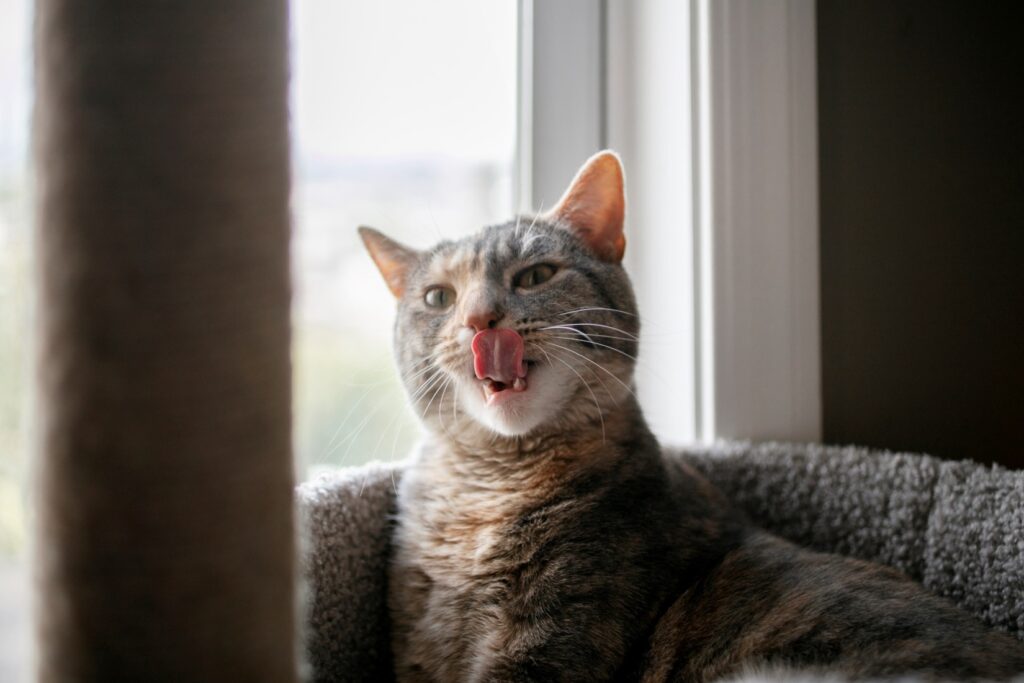
Cat spay is a common surgical procedure that involves the removal of a female cat’s ovaries and uterus. While it’s a routine and generally safe procedure with numerous health benefits, some misconceptions still persist. This article will debunk common myths surrounding cat spay, providing accurate information to help you make informed decisions about your feline companion’s well-being.
Myth 1: My Cat Needs to Have Kittens Before Cat Spay
One of the most persistent myths is that a female cat should experience motherhood before being spayed. However, this notion is entirely unfounded and can have detrimental consequences for both the cat and potential offspring.
- Unplanned Litters: Allowing your cat to have kittens without proper planning can lead to an uncontrollable number of offspring. This contributes to the overpopulation of cats in shelters, many of whom may face euthanasia due to a lack of adopters.
- Health Risks for the Cat: Pregnancy and childbirth are physically demanding for cats. They increase the risk of various health complications, including uterine infections, mastitis, and even death.
- Health Risks for Kittens: Kittens born to unsprayed mothers are more likely to suffer from health problems, including genetic defects and infectious diseases.
Furthermore, spaying your cat before her first heat cycle significantly reduces her risk of developing breast cancer, a common and potentially fatal feline malignancy.
Myth 2: Spaying Will Make My Cat Fat and Lazy
Another common misconception is that spaying will inevitably lead to weight gain and decreased activity levels in your cat. While some spayed cats may experience minor weight fluctuations, this is often due to dietary changes rather than the surgery itself.
- Dietary Adjustments: After spaying, your cat’s metabolism may change slightly. Consult with your veterinarian about adjusting your cat’s food intake to maintain a healthy weight.
- Maintaining Activity Levels: Regular exercise and playtime are crucial for all cats, regardless of their spay status. Engaging in interactive play sessions and providing scratching posts and climbing opportunities can help keep your spayed cat active and stimulated.
By providing a balanced diet and ensuring adequate exercise, you can help your spayed cat maintain a healthy weight and an active lifestyle

Myth 3: Spaying Will Change My Cat’s Personality
Some people believe that spaying will drastically alter a cat’s personality, making them less affectionate or more aggressive. However, this is rarely the case.
- Hormonal Influences: Hormonal fluctuations associated with heat cycles can sometimes lead to behavioral changes in unspayed cats, such as increased vocalization, restlessness, and spraying.
- Improved Behavior: In many cases, spaying can actually improve a cat’s behavior by reducing or eliminating these hormone-driven issues.
While individual cats may exhibit unique personalities, spaying typically does not cause significant personality changes.
Myth 4: Spaying is Too Risky
While any surgical procedure carries inherent risks, cat spay is a routine and generally safe procedure when performed by a qualified veterinarian.
- Anesthesia Risks: As with any anesthesia, there is a slight risk of complications, such as allergic reactions or difficulty waking up from anesthesia.
- Surgical Risks: There is a small risk of infection or bleeding during or after surgery.
However, these risks are minimal when the procedure is performed by a skilled veterinarian in a well-equipped facility.
The Benefits of Cat Spay
The benefits of spaying your cat far outweigh any potential risks.
- Reduced Risk of Cancer: Spaying significantly reduces the risk of ovarian, uterine, and breast cancer in cats.
- Prevention of Unwanted Pregnancies: Spaying eliminates the risk of unwanted pregnancies, helping to control the feline population and reduce the number of homeless cats.
- Improved Behavior: Spaying can help reduce or eliminate undesirable behaviors associated with heat cycles, such as spraying, vocalization, and restlessness.
- Improved Overall Health: Spaying can improve your cat’s overall health and well-being by preventing various reproductive-related health issues.
When to Spay Your Cat
The optimal time to spay your cat is typically between four and six months of age. However, kittens as young as eight weeks can be spayed safely under certain circumstances.
- Consult Your Veterinarian: Discuss the timing of your cat’s spay with your veterinarian. They can assess your cat’s individual needs and recommend the most appropriate time for the procedure.
Preparing Your Cat for Spay
Before your cat’s spay surgery, there are a few things you can do to prepare.
- Fasting: Your veterinarian will provide instructions on fasting your cat before surgery. This typically involves withholding food for a certain period but allowing them to drink water.
- Carrier: Bring a secure carrier to the veterinary clinic to transport your cat safely.
Post-Operative Care
After your cat’s spay surgery, it’s essential to provide proper post-operative care.
- Pain Management: Your veterinarian will prescribe pain medication to help your cat recover comfortably.
- Rest: Provide a quiet and comfortable space for your cat to rest and recover.
- Monitoring: Monitor your cat closely for any signs of complications, such as excessive bleeding, lethargy, or difficulty urinating.
- Follow-Up: Schedule a follow-up appointment with your veterinarian to ensure your cat is healing properly.

Animal Hospital Aurora: Your Partner in Pet Health
The Animal Hospital of Aurora is a full-service veterinary clinic dedicated to providing compassionate and comprehensive care for your pets. Our experienced veterinarians and caring staff offer a wide range of services, from routine checkups and vaccinations to advanced diagnostics and surgical procedures. We understand the special bond you share with your furry friends, and we strive to provide the highest quality care in a warm and welcoming environment.
Conclusion
Cat spay is a safe and responsible decision for cat owners. By understanding the facts and debunking common myths, you can make informed choices about your feline companion’s health and well-being.
Remember, spaying your cat not only benefits your individual pet but also contributes to a healthier and more humane feline population.



